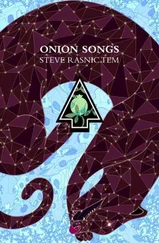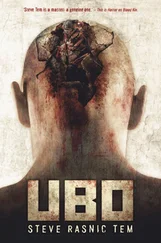Steve Tem - Excavation
Здесь есть возможность читать онлайн «Steve Tem - Excavation» весь текст электронной книги совершенно бесплатно (целиком полную версию без сокращений). В некоторых случаях можно слушать аудио, скачать через торрент в формате fb2 и присутствует краткое содержание. Год выпуска: 2010, ISBN: 2010, Издательство: Crossroad Press & Macabre Ink, Жанр: Ужасы и Мистика, на английском языке. Описание произведения, (предисловие) а так же отзывы посетителей доступны на портале библиотеки ЛибКат.
- Название:Excavation
- Автор:
- Издательство:Crossroad Press & Macabre Ink
- Жанр:
- Год:2010
- ISBN:978-1-452-38320-0
- Рейтинг книги:3 / 5. Голосов: 1
-
Избранное:Добавить в избранное
- Отзывы:
-
Ваша оценка:
- 60
- 1
- 2
- 3
- 4
- 5
Excavation: краткое содержание, описание и аннотация
Предлагаем к чтению аннотацию, описание, краткое содержание или предисловие (зависит от того, что написал сам автор книги «Excavation»). Если вы не нашли необходимую информацию о книге — напишите в комментариях, мы постараемся отыскать её.
Excavation — читать онлайн бесплатно полную книгу (весь текст) целиком
Ниже представлен текст книги, разбитый по страницам. Система сохранения места последней прочитанной страницы, позволяет с удобством читать онлайн бесплатно книгу «Excavation», без необходимости каждый раз заново искать на чём Вы остановились. Поставьте закладку, и сможете в любой момент перейти на страницу, на которой закончили чтение.
Интервал:
Закладка:
And that crazy Doris Parkey was standing out in the middle of the street just bawling, screaming at the sky that “the day’s finally come! Oh I knew it! Finally come! I ain’t stepping back onto that bedeviled slab no more, not for anything!”
Joe started to run.
Mr. Felix Emmanuel heard the Parkey woman screaming, but made no attempt to move from the big easy chair by the window. These mountain women were all the same—hysterical, worn out hags—hardly women in any sense. Superstitious lot, especially this Doris Parkey. She’d kept him up more than one night with her endless pacing and her whining attempts to get that drunken husband of hers awake and out to inspect that crumbling slab. Horrible, dirty town…
He pulled back the curtain a bit and stared at the old scarecrow—hardly old in years, be thought, probably no more than thirty, but just look at her!—as she wailed at the skies, her skeletal arms upraised, knobby fists clenched. Crazy, crazy lady.
He’d be out of here soon, however; the company had been punishing him for that cave-in in West Virginia, but his cousin Willie in Pittsburgh was taking care of things. He’d be out of this cesspool in no time.
The cave-in hadn’t been his fault, and it bothered Mr. Emmanuel the way some people still looked at him about that. As if he had caused all those deaths. It had been a tragedy, no doubt about that—Mr. Emmanuel hated to see all those lives lost. He himself had two brothers who worked a good fifteen years apiece in the coal mines, one with a gimp leg to show for it, so he knew what it was like. The mines were a lot better than they used to be; used to be some of the small, owner-operated mines were no better than deathtraps. Things were a lot better now with the larger operators, the corporations. He liked to think he had had a small part in making the mines safer.
But you could only do so much before it ceased to be a business, and Mr. Emmanuel knew that was where you had to draw the line. After all, people had to have jobs, they had to eat, and if you closed down every coal shaft that had a minor problem then no one would survive. The miners knew that, and they knew what risks they were taking. So most of them supported the company in what they were trying to do—make the mines safer but still profitable. That was the name of the game, wasn’t it? But there were always a few troublemakers, and Mr. Emmanuel had to admit he’d never cared too much for troublemakers.
The people around here still seemed to blame the coal company for that terrible flood of a few years back. It had been a terrible tragedy—a number of lives were lost, massive property damage—and the company had done all it could to help out afterwards. They considered themselves a part of the community—and dammit, Emmanuel knew most companies wouldn’t have done as much, they’d have said screw those folks—and had sent food supplies, surplus lumber, and two of the company physicians down from Pennsylvania. They’d had their workmen out with bulldozers clearing the debris. They’d done all they could.
Besides, the work on the waste dam had been farmed out to a smaller, locally owned company, one of their own people. If anyone was responsible for the disaster, they were, not the Nole Company.
But despite all Mr. Emmanuel’s careful, reasoned explanations, the people still distrusted him and blamed the company. They just wouldn’t listen. As stubborn as the hills, as their own saying went. It infuriated him.
He pulled on his undershirt and grimaced. Not even a decent laundry anywhere, and the Parkey woman had no aptitude for washing. He could do better himself in some stream steaming with mine acid. He grinned and drew on his pipe.
He could hear the Parkey man growling in his sleep again like an animal. Bright red hair like a great fox. Ugly man. Redneck—he fit the description in every way.
Inez paused outside Hector’s door, her hand clutching the doorknob. She balanced his breakfast tray on the other hand. But she couldn’t go in. He was babbling on again… bloody teeth… bloody teeth… and she couldn’t bear to go in the room while he was carrying on like that.
She glanced at the tray indecisively, removed her hand from the knob, and used it to help support the tray. Then she started back down the stairs; she would try him later.
Something bad had happened in the town; everyone had left the cafe and gathered on the street outside, but Audra Larson couldn’t bring herself to go out there. She stayed behind the counter, as if that counter were a castle wall a hundred feet tall, and polished—polished the fixtures and the counter and the glassware and even the glass on the Coca-Cola wall clock—and after that was done she took out the ammonia and began dabbing with a big yellow sponge at the wall tiles and the switchplates and the woodwork surrounding the doorway to the kitchen. Nothing ever seemed to stay clean around there, no matter how hard she tried. All her brother-in-law could see was that the place was never clean enough, no matter how hard she tried.
When Daddy had given her the cafe to run, she’d thought it was the nicest thing he’d ever done for her. The only nice thing, if truth be told. At one time she’d figured it was because Doris was married, and her father had little hope Audra would ever get married. Too plain. After years of believing that, she’d finally come to realize that her washed-out skin and long light brown hair were at least pleasant to look at, and she did have a nice smile. She wasn’t married, but she just hadn’t met the right man. She was different, always had been, and she had learned that sometimes made it harder.
She should’ve known there’d be strings attached; her daddy never did anything for anybody without strings. This time the string was Doris’s husband Jake as part-owner, since her father would never give ownership to Doris because he was convinced she didn’t have a brain in her head. At least Audra has been to college, as he was so fond of saying.
For all the good it had done her. Maybe her father had a point about majoring in history. Certainly no jobs there. But it was something she wanted, and she worked her way through so he had no right to complain. She shouldn’t have come home… that was the mistake. But she let herself go back, where things were easier. She’d needed the time to think, to “get herself together,” as they used to say in college.
Everybody was still out there; no one had come back into the cafe. She finally stopped cleaning and, puzzled, sat on a tall stool behind the counter. Nothing ever went wrong here, at least nothing new went wrong.
She wanted to go ask somebody what was going on, but she couldn’t bring herself to walk out in front of that counter.
By the time Inez Pierce had mustered enough nerve to enter her brother’s room it was almost noon. Reed Taylor was boarding a train in Louisville that would eventually take him to the Big Andy and the town of Simpson Creeks. And some of the men of the Creeks had gathered in Charlie Simpson’s store to discuss the death of Buck, Charlie’s old hound dog.
“…not like a bear to do such a thing,” Joe Manors said. “Bears are pretty cowardly; they won’t attack you unless they’re cornered. Can’t see how a bear could’a’ done such a thing.”
“Well, it was a bear… no doubt about that. You know it was a bear, Joe.” Jake Parkey leaned forward and belched, then chugged another beer.
“He’s right, Joe.” Ben Taylor stretched his long legs out before the stove, putting his hands in back of his sandy-colored hair as he studied his old worn shoes. With all the excitement, he’d forgotten to put on the ones he usually wore in the store. The other men looked at the shoes. Jake Parkey nodded at their significance. “Nothing else could maul an animal that way. But the way it happened don’t make much sense, I admit. Hasn’t been a bear in the area in over twenty years, and I never knew one to come into a town like this.”
Читать дальшеИнтервал:
Закладка:
Похожие книги на «Excavation»
Представляем Вашему вниманию похожие книги на «Excavation» списком для выбора. Мы отобрали схожую по названию и смыслу литературу в надежде предоставить читателям больше вариантов отыскать новые, интересные, ещё непрочитанные произведения.
Обсуждение, отзывы о книге «Excavation» и просто собственные мнения читателей. Оставьте ваши комментарии, напишите, что Вы думаете о произведении, его смысле или главных героях. Укажите что конкретно понравилось, а что нет, и почему Вы так считаете.












